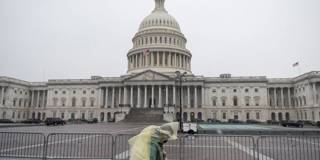The pre-pandemic US economy may have had a record-low official unemployment rate and sky-high stock-market valuations, but it was hardly serving the majority of Americans. Good jobs for those without a college degree have been disappearing, and this ominous trend will not reverse itself without an overhaul of economic policy.
BOSTON – With US President-elect Joe Biden’s imminent inauguration and the rollout of COVID-19 vaccinations, there is growing optimism for an economic rebound in 2021. But such hopes are misplaced, and not only because the virus is likely to remain a problem for longer than people think. The real problem is that the pre-pandemic US economy is unworthy of being emulated.
To be sure, the unemployment rate had hit a record low of 3.6%, and stock market valuations had reached new heights. But the US economy also had an acute shortage of good jobs with high pay and meaningful opportunities for career advancement, particularly among workers without post-secondary education and specialized skills (such as programming or top athletic talent).
From the 1950s to the 1970s, good jobs were the US economy’s lifeblood, delivering broadly shared prosperity and social cohesion for a growing middle class. Though there was still significant progress to be made toward racial and gender equality, the private sector’s demand for labor grew at a striking pace during this period. US businesses’ total payments to labor increased by about 2.5 percentage points per year faster than population growth, implying real (inflation-adjusted) income growth above 2% per year. Even more remarkably, this growth benefited college-degree holders and less-educated workers alike, such that overall income inequality remained stable or even declined.

BOSTON – With US President-elect Joe Biden’s imminent inauguration and the rollout of COVID-19 vaccinations, there is growing optimism for an economic rebound in 2021. But such hopes are misplaced, and not only because the virus is likely to remain a problem for longer than people think. The real problem is that the pre-pandemic US economy is unworthy of being emulated.
To be sure, the unemployment rate had hit a record low of 3.6%, and stock market valuations had reached new heights. But the US economy also had an acute shortage of good jobs with high pay and meaningful opportunities for career advancement, particularly among workers without post-secondary education and specialized skills (such as programming or top athletic talent).
From the 1950s to the 1970s, good jobs were the US economy’s lifeblood, delivering broadly shared prosperity and social cohesion for a growing middle class. Though there was still significant progress to be made toward racial and gender equality, the private sector’s demand for labor grew at a striking pace during this period. US businesses’ total payments to labor increased by about 2.5 percentage points per year faster than population growth, implying real (inflation-adjusted) income growth above 2% per year. Even more remarkably, this growth benefited college-degree holders and less-educated workers alike, such that overall income inequality remained stable or even declined.